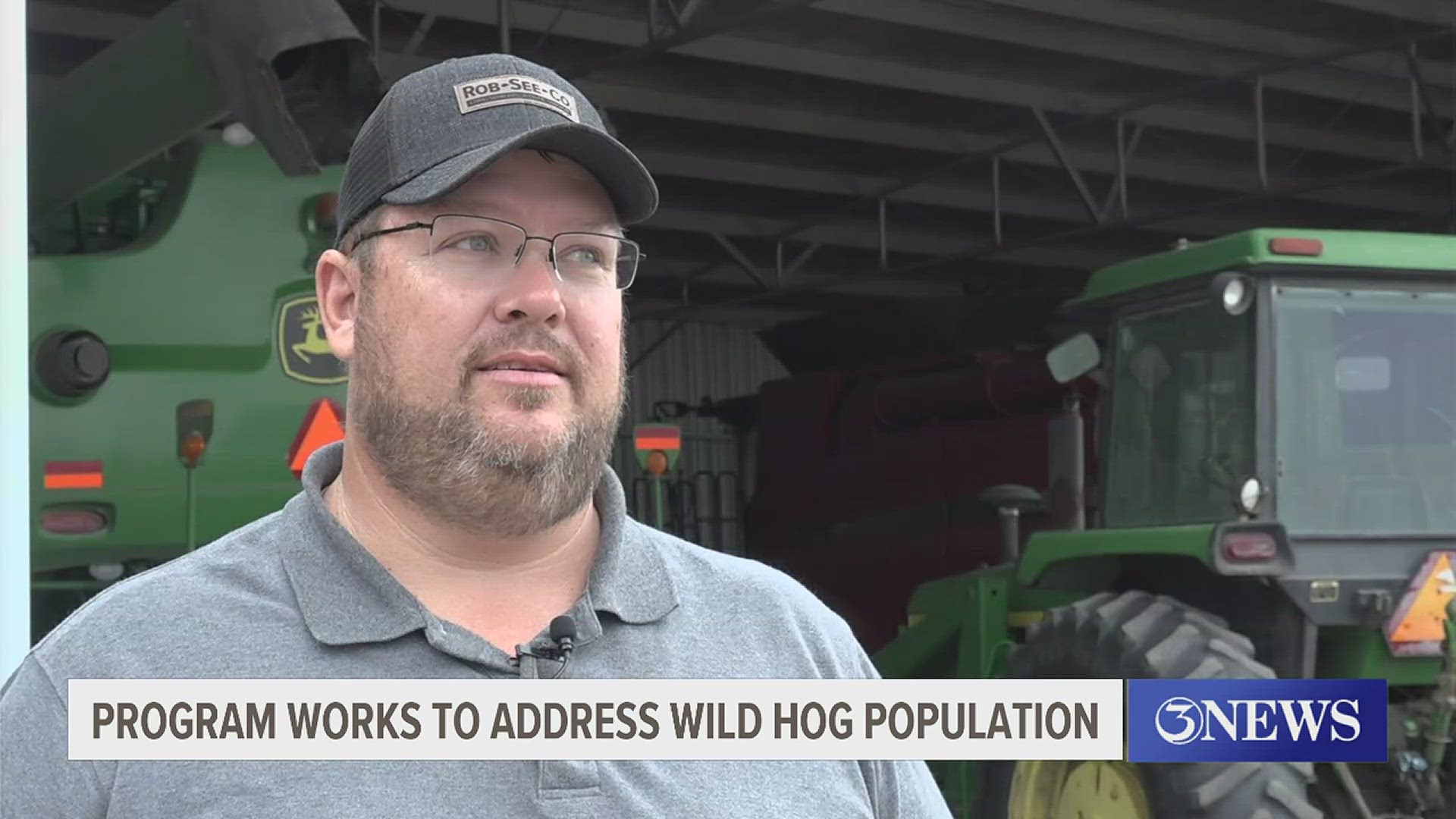CORPUS CHRISTI, Texas — If you've lived in Nueces county for a long time, then you're probably no stranger to wild hogs.
The creatures have become such a problem in the community that the county has reached an agreement with Texas A&M AgriLife Extension to partake in their Wild Hog Abatement Program, which uses grants to help landowners mitigate the presence of wild hogs.
Often times, the hogs have been spotted in neighborhoods on the city's South Side, and are a constant source of irritation for farmers like James Faske.
"It's every part of agriculture that is affected by the damage that they do," he said.
Faske has been farming full time for the last decade and primarily works on the southern side of Nueces county. He said that when wild hogs appear in his field -- it often comes at a steep price.
"Every acre they knock down is possibly $500-$600 an acre in gross revenue for the farmer to pay its bills and hopefully make a little bit of money," he said.
Texas A&M AgriLife Extension Wildlife Services State Director Michael Bodenchuck said that out of 31 counties, only two in our area received funding. Nueces and Duval counties, combined, both received slightly over $20,000.
It's something Bodenchuck said Nueces County has shown a dire need for year-after-year.
"They are annual agreements, the county has to compete for it each year," he said. "But because they've done so well in the past managing the trap-loan program and reaching land owners, they were funded again in '24."
The traps the county purchases can run around $7,000 a piece, and are something Bodenchuck said are the core reason Nueces county continues to receive funds from the program.
"Nueces county has purchased some of these and will loan them out to residents who have a pig problem at no cost to the land owner," he said.
Over the past two years, Bodencheck said that his department has recorded 39 reports of damage to crops, eight reports of property damage, and even once case of potential harm to humans.

